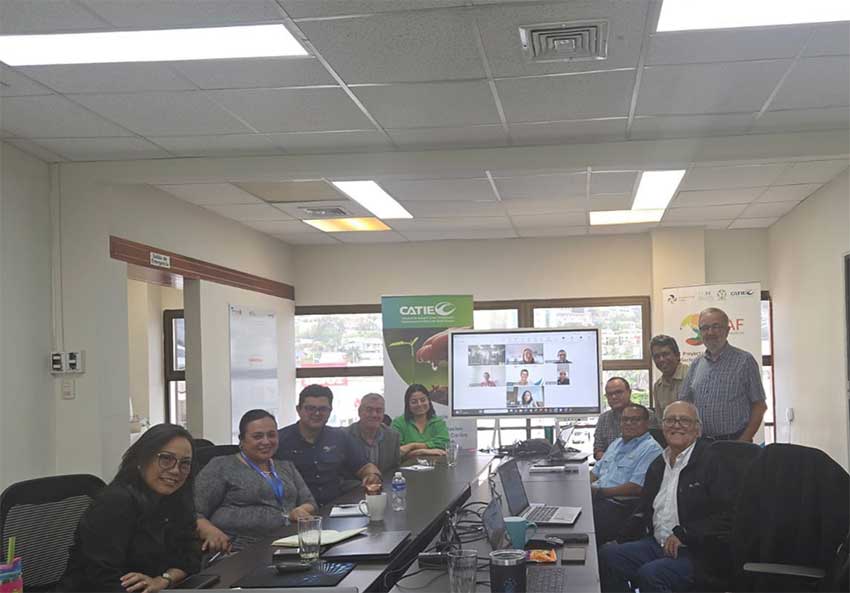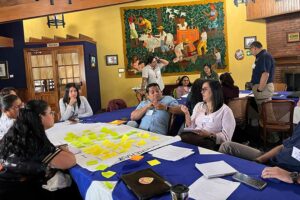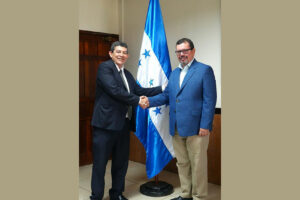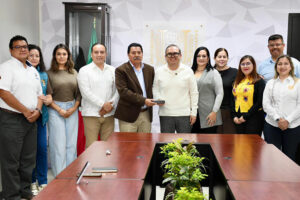MAF–Ganadería–HN Project begins mid-term evaluation mission to strengthen its management

- A strategic assessment seeking to consolidate progress and lessons learned toward sustainable and low-carbon livestock farming in Honduras .
CATIE (Tropical Agricultural Research and Higher Education Center), through the project “Transforming the Honduran Livestock Sector into a Low-Carbon Economy,” known as MAF-Ganadería-HN and financed by the Mitigation Action Facility (MAF), received a technical team in charge of conducting the mid-term evaluation process. This process aims to analyze the progress, results, and lessons learned achieved in the implementation of the project to date, with the purpose of ensuring that the project reaches its goal of promoting the transition toward sustainable and low-carbon livestock farming in Honduras.
The evaluation is being carried out by consultants Roberto Canessa, Edwin Pérez, and Víctor Ganoza, who are part of the Dorsch Impact GmbH/Oxford Policy Management consortium. They held meetings with the project’s technical team, partner institutions, beneficiary producers, and other key groups in the intervention areas.
The purpose of the process is to assess the relevance, efficiency, effectiveness, and sustainability of the actions implemented, identifying opportunities for improvement that strengthen the technical and strategic management of the project.
During the mission, consultant Ganoza stated that this mission represents “a great opportunity to keep our feet on the ground and reflect on how we are implementing and taking action,” emphasizing the importance of maintaining a critical and constructive perspective throughout the execution process.
For his part, Pérez acknowledged that the project’s goals are very ambitious and that the methodology to achieve them is clearly defined.
The consulting team was responsible for gathering the perspectives of the different stakeholders involved in the project, including its technical team.
The interviews were conducted with three stakeholder groups:
- Group 1: Members of the central team of the MAF-Ganadería-HN project.
- Group 2: Stakeholders connected to the project, such as government authorities, producers, beneficiary organizations, and implementing partners.
- Group 3: Other relevant actors in the sector, including development partners, donors, NGOs, and specialists in sustainable livestock farming or climate-smart agriculture in Honduras.
The head of the mission, Canessa, expressed his appreciation for the openness and willingness of the participating teams, noting that this process “will be very valuable for strengthening the implementation and institutional learning of the MAF-Ganadería-Honduras project.”
As the next step, the consultants will prepare a draft evaluation report, which will be shared with the project team in order to review the findings and jointly formulate recommendations.
Through the MAF-Ganadería-HN project, CATIE reiterates its commitment to transparency, continuous improvement, and knowledge generation—fundamental pillars for advancing toward a more sustainable, competitive, and climate-resilient livestock sector.
More information:
Juan Carlos Flores
National Coordinator Honduras
Communicator
Project Transforming the Honduran Livestock Sector Towards a Low-Carbon Economy (MAF-Ganadería-HN)
CATIE
juan.flores@catie.ac.cr
Written by:
Gina Samanti Puerto Morazán
Communicator
Communicator
Project Transforming the Honduran Livestock Sector Towards a Low-Carbon Economy (MAF-Ganadería-HN)
CATIE
gina.puerto@catie.ac.cr



